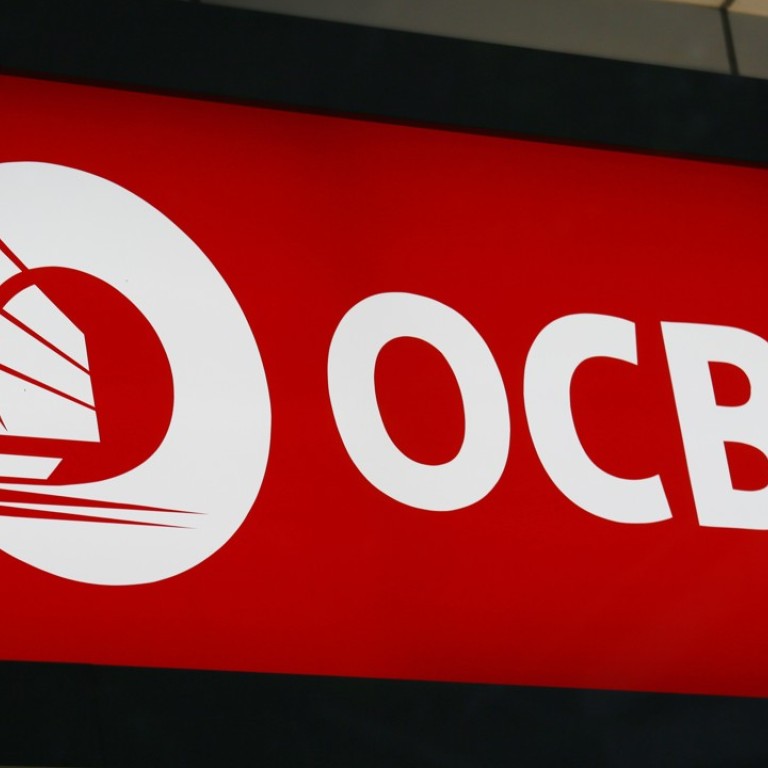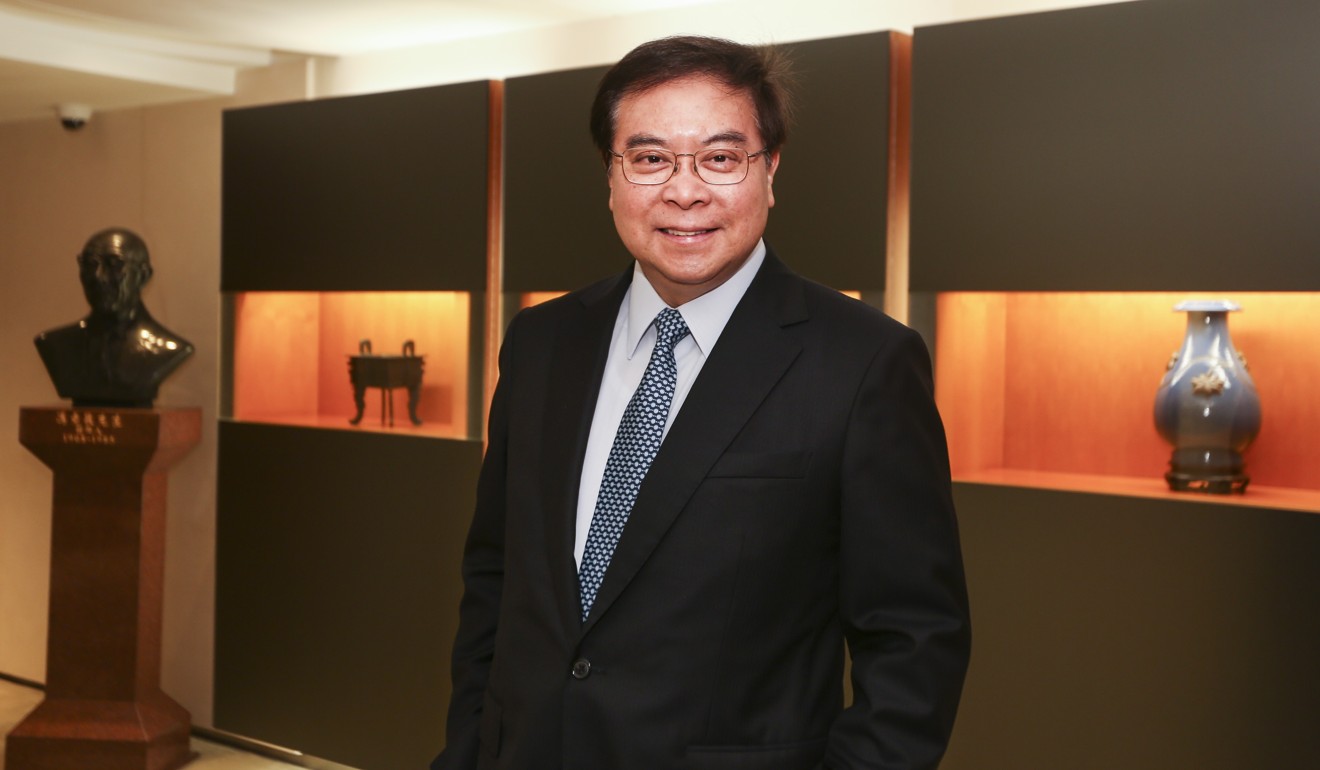
Singapore’s second-largest bank wants a slice of China's flagship infrastructure projects
Chief executive Samuel Tsien shrugs off concerns about the role foreign lenders will be able to play in belt and road plan
Singapore’s second largest lender, Oversea Chinese Banking Corporation, aims to benefit from China’s flagship “Belt and Road Initiative” and Greater Bay Area projects, according to chief executive Samuel Tsien.
OCBC hopes to profit from servicing the flows of business and wealth from China into South East Asia, Tsien told the Post in an interview at OCBC Wing Hang’s offices in Hong Kong.
The previous way of doing business, where you have everything mapped out before you jump, has passed
“At the present time, our objective is to permeate as much as possible into those projects [the Belt and Road and the Greater Bay Area],” he said.
“We hope that an additional four or five per cent of our assets will come from the China flow business in the future.”
OCBC had assets of S$429 billion (US$314 billion) at the end of June according to its interim results.
Twenty per cent of the bank’s pre-tax profits came from Greater China in the first half of this year.
The belt and road trade strategy seeks to drive greater economic integration between regional economies through investment in infrastructure, while the Greater Bay Area aims to link nine cities in Guangdong province with Hong Kong and Macau, and in so doing create a world-class cluster for the development of business and technology.

“The previous way of doing business, where you have everything mapped out before you jump, has passed,” he said.
“The world is changing so quickly that if the direction in which a project is heading for the next two years looks attractive, and you think you have a competitive advantage, you have to go for it, even if you are not sure where it will end up in five years.
“The belt and road means there will be more flows from China into rest of the world. To me that’s a business opportunity. I don’t need to define it.”
Other international banks with a significant presence in the region such as HSBC, Standard Chartered and Citigroup are also looking to benefit from the belt and road plan.
However, there are also concerns about the role foreign lenders will be able to play in the project, given the competition they face from Chinese domestic lenders.
This did not dim Tsien’s enthusiasm for the scheme.
“I think the Chinese policy banks have a competitive advantage over us, and the Chinese banks do too, but the flow will be so big that no one category of bank will be able to do it all,” he said.
Tsien also pointed to a number of projects in Indonesia, Myanmar and Cambodia involving Chinese companies for which the bank had provided funding.
He said Singapore would play a unique role in the belt and road initiative.
“In the longer term the Chinese companies cannot do without what Singapore offers. There will be so many projects that structuring becomes important, risk management becomes important, and insurance becomes important. In all of these areas Singapore has a unique capability as a knowledge centre.”
Hong Kong is also trying to benefit from providing these sorts of services.
“Don’t underestimate Hong Kong’s role. When the companies leave China, the city has a part to play, but once they land in South East Asia the Singaporean banks and Singapore will have a greater role to play,” Tsien said.

